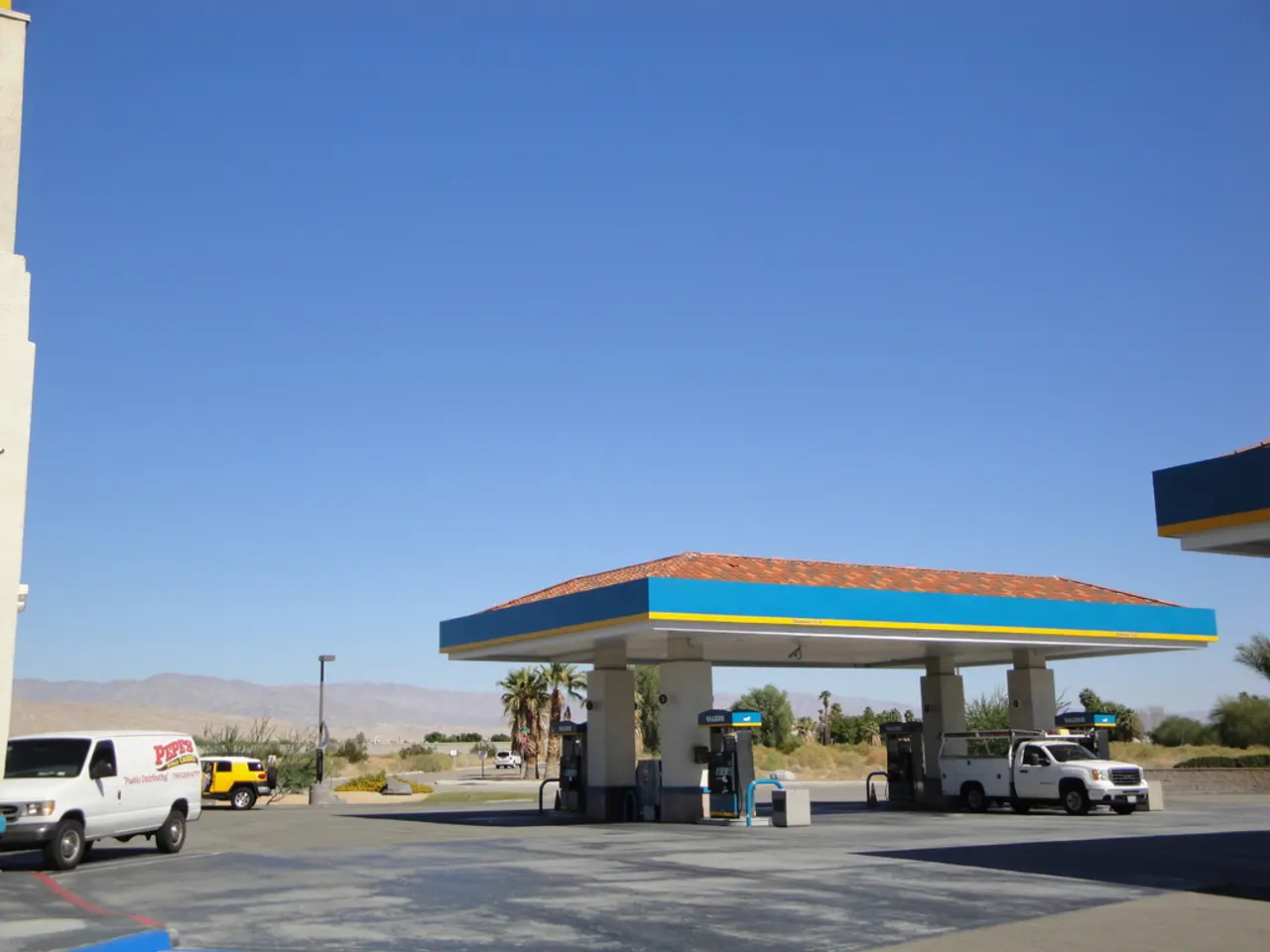Fossil fuel tax introduced in Nigeria's latest announcement
Nigeria has announced a new 5% tax on refined fossil fuel products, including petrol, diesel, kerosene, and aviation fuel, as part of an effort to boost fiscal sustainability and transition towards cleaner energy sources [1][2][3][5]. The tax, expected to generate around N796 billion (approximately half a billion USD) annually, will not apply to clean energy sources such as cooking gas and compressed natural gas.
While the tax aims to support fiscal sustainability amidst Nigeria’s growing public debt, critics, including nonprofit groups like ActionAid Nigeria, warn that the surcharge will disproportionately impact the poor and exacerbate income inequality [1]. The increased cost of petrol and diesel, essentials that disproportionately affect low-income households, could lead to inflationary pressures and harm poor and vulnerable groups who spend a larger portion of their income on fuel and related essentials [2][3].
Economically, the tax could potentially improve fiscal balance, but it risks increasing inflationary pressures due to higher fuel prices leading to increased costs in transportation and goods. The government’s exemption of some cleaner fuels from the tax suggests a policy drive toward reducing fossil fuel dependence, but the immediate economic burden on the poor and the broader economy could deepen hardship in the short term.
The new tax comes at a time when Nigeria is grappling with extreme weather as climate change makes monsoon season more erratic, with communities across Asia facing similar challenges [6]. The impact of these environmental factors on the economy and the lives of the people remains a significant concern.
In summary, the new tax aims to support fiscal sustainability, but it could exacerbate inequality and inflation-driven hardship, especially for the poor population. The economic implications include potential inflation and increased living costs due to fuel price hikes, with minor long-term gains from a push to cleaner energy. This demonstrates a trade-off between Nigeria’s fiscal needs and socio-economic equity, with concerns focusing on the burden placed on the poor and economic stability in the short term.
References:
- Nigeria's new fossil fuel tax to hit poor hardest, critics warn
- Nigeria set to impose 5% tax on refined fossil fuel products
- Nigeria's fuel subsidy removal: What it means for the poor
- Climate change making monsoon season more erratic, wreaking havoc in Asia
- Nigeria's New Fossil Fuel Tax Expected to Generate About Half a Billion Dollars Annually
- Simultaneously addressing fiscal sustainability, the government is planning to invest a significant portion of the anticipated N796 billion revenue from the tax in real-estate and other areas, with the aim of creating jobs and stimulating economic growth.
- Amidst criticism about the new tax's impact on the poor, efficient and strategic investing in clean energy sources, such as renewable energy and real-estate infrastructure for green initiatives, could help to mitigate the financial burden on lower-income households and contribute to a sustainable transition toward cleaner energy.




